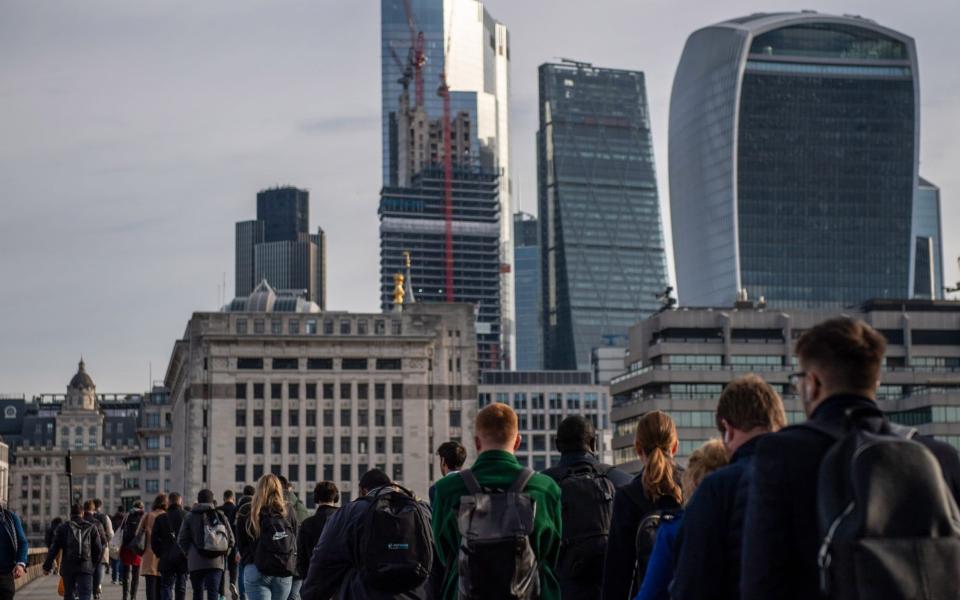Wages flatline ahead of Bank of England’s interest rate decision, says think tank

Wage growth has come to a halt in recent months, according to a leading think tank, giving the Bank of England room to hold interest rates unchanged on Thursday.
Analysis by the Resolution Foundation suggests increases in pay across the economy have stalled since November, even as official figures continue to show strong growth.
Average weekly wages only rose by £1 between November and January, according to the think tank, climbing from £582 to £583.
The figures contrast with official data from the Office for National Statistics (ONS), which suggest pay, excluding bonuses, rose by 6.5pc between November and January.
The Resolution Foundation looked at changes in pay levels, whereas the ONS analysed the change during the period compared to 12 months earlier.
The think tank said the ONS’s method was “telling us more about what happened yesterday than the strength of wage pressure today”.
Charlie McCurdy, economist at the Resolution Foundation, said: “Private sector pay, far from spiralling, has instead flatlined since November.”
The fear of a wage-price spiral that drives inflation higher has been a key influence on the Bank of England’s recent monetary policy decisions.
Last month, Andrew Bailey repeated his plea for workers to restrain from asking for large pay increases, for fear of stoking inflation.
The Resolution Foundation’s findings come amid speculation that the Bank could hold back from a further rate increase this week given recent instability in the global banking system and financial markets.
Barclays has scrapped its expectation for a 0.25 percentage point rise this week, instead predicting the Bank will hold rates at 4pc.
Mr McCurdy said stagnating pay levels should have a bigger impact on the Bank of England’s rate decision than financial market jitters following the collapse of Silicon Valley Bank and the emergency takeover of Credit Suisse.
He said: “Discussion of whether the central bank has one final rate rise in it before pausing have focused on whether the Bank’s hand will be stayed by the instability we are seeing playing out in the banking sector from Silicon Valley to Switzerland.
“But in the UK specifically something else should be more material to the MPC’s decisions – something that has gone entirely unnoticed. Wage growth has ground to a halt.
“The future path of wages in Britain remains very uncertain, but looking back over recent months the picture is very different from that often presented.”

 Yahoo Finance
Yahoo Finance 